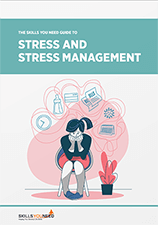How to Effectively Leave Work at Work
See also: Work-Life BalanceIt is no secret that concerns with work can take over our lives. After all, we depend on our job to pay the bills, feed our family, and create a better living situation.
But all too often we find ourselves being consumed by work, even while we are at home. This can cause discontent among family members, while also increasing stress levels.
However, there are ways to effectively leave work at work.
We have listed eight of these below so that you can effectively incorporate them into your life today.
1. Change Your Mindset
If you are having trouble putting the workday behind you after you have left the office, then you should consider implementing ways to change your mindset.
While making the transition from work life to home life is not a simple as flipping a switch, with a bit of effort it can be accomplished.
One of the best ways to do this is to set goals that will help you to forget about work once you arrive home. For instance, if work is getting in the way of your family life, or you find that you are missing important events in your children’s lives, then set aside a block of time each day to spend with them, regardless of any pressing issues at the office.
As you adjust to this change you will soon find that leaving work at work will become more natural. In addition, making these changes can significantly increase the quality of life at home and strengthen relationships that may be suffering, which can only have a positive effect on your performance at work.
Read more on our page: The Importance of Mindset
2. Use Humor
Laughter is one of the most effective ways to relieve stress, and this is also true when it comes to forgetting about work.
If you find yourself being consumed by work, try rehashing some of your favorite jokes, or visiting one of the many comedy themed websites that are designed to make you laugh. In addition to these methods, consider spending the night on the couch watching your favorite comedy movie. Not only will the movie provide unlimited laughs, it can help take your mind off work for a few hours, and by the end of the movie, you may just forget about work altogether.
See our pages: Laughter Therapy as Stress Relief and Developing a Sense of Humour for more.
3. Enjoy the Drive Home
Chances are you do not pay much attention to your surrounding environment when driving to and from work.
After all, you have probably driven the route so many times that you feel that there is nothing new to see, and more often than not, you are more focused on other issues than sightseeing.
However, this may be causing you to miss some wonderful attractions and scenery.
When you are on your commute home, pretend that you are a tourist experiencing the area for the first time. Not only will this help you to discover places that you never knew existed, it will provide an adequate distraction from the stresses of the office.
4. Practice Meditation
There are few methods that are as powerful for taking your mind off work as practicing meditation.
If you have never considered meditation because you feel that you do not have the time, or you do not believe that it will make any difference in your life, then now is the time to start.
Meditating can be done almost anywhere, and it only takes a few minutes for your stresses to fade away. In fact, there are many people who will meditate while on break at their place of employment. If this is not an option, consider setting aside 15 minutes when you arrive home from the office, and use this time to calm your body and eradicate any concerns about work.
Our pages on Mindfulness and Relaxation Techniques have more on meditation.
5. Proper Preparation
A major cause of work-related stress is the feeling of being overwhelmed due to a lack of preparation.
You may find yourself putting off certain tasks with the intention of working on them at a later time, but this way of handling your workload often causes additional stress. To ensure that this does not happen, it is important to plan ahead and accomplish tasks as they come to you so that you do not get backed up with work. If your workload becomes too much, you may want to consider discussing it with your employer to see if there are any changes that can be made to alleviate some of the burden.
6. Don’t Over Do It
It can be easy to get over involved at work by trying to go above and beyond in order to please others. And while it is important to give your all so that you can succeed, this does not mean that you must solve all the problems within your department.
Instead, focus on the workload that is required, and only after you have accomplished this, then, if there is time, you can move on to additional tasks.
However, once the workday has ended it is important you stop worrying about these tasks and start on them when you return to the office.
7. Phone a Friend
We often forget that there are other people with problems and not just ourselves.
Often, friends will be experiencing the same issues with their jobs, and talking with them is a great way to provide relief for both parties.
When you are leaving the office, make it a point to call one of your close friends and tell them what is on your mind. Of course, it is important to talk with family as well, but friends can provide a different perspective on things.
8. Try Venting
There are times when talking problems through with others will not suffice. In these circumstances, venting out loud while commuting home can help to free your mind.
Sometimes all that it takes is hearing yourself complain to help alleviate work-related issues. This does not mean that you need to scream at the steering wheel as you weave in and out of traffic, but instead speak in a firm manner as if explaining your problems to a counselor. You may be surprised at the relief this provides; just be careful not to go overboard.
Further Reading from Skills You Need
The Skills You Need Guide to Stress and Stress Management
Understand and Manage Stress in Your Life
Learn more about the nature of stress and how you can effectively cope with stress at work, at home and in life generally. The Skills You Need Guide to Stress and Stress Management eBook covers all you need to know to help you through those stressful times and become more resilient.
In Conclusion
The workplace can be very demanding and the stresses that come along with it can easily make their way into our lives at home. If you feel this is happening to you, consider some ways that will help relieve these issues, such as changing your mindset and talking problems over with friends. In addition, use the commute from work as a way of winding down prior to arriving home.
By keeping these tips in mind you will be able to effectively leave work at work.
About the Author

Wheeler Coleman is the CEO and Executive Partner at EC-United, a boutique IT consulting firm specializing in providing innovative solutions to transform businesses. He also sits on the Board of Trustees at Northern Illinois University.

